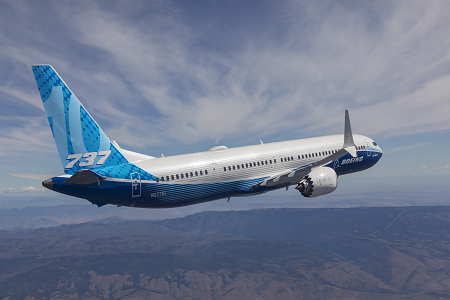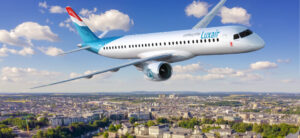In a significant development, Boeing [NYSE:BA] has unveiled its state-of-the-art Engineering and Technology Center in Brazil. This center is a part of Boeing’s global network of 15 engineering sites dedicated to fostering cutting-edge aerospace innovations. Situated in São José dos Campos (SP), Brazil, the facility marks an expansion of Boeing’s substantial investments in the country, where it currently employs approximately 500 engineers actively supporting both present and future aerospace projects.
Boeing’s Enduring Collaboration with Brazil
Boeing’s rich history in Brazil, spanning over 90 years, has cultivated a lasting partnership with the country. Over these decades, the company has joined hands with the Brazilian aerospace industry and harnessed the country’s remarkable technical capabilities and problem-solving skills. According to Lynne Hopper, Vice President of Boeing Engineering, Strategy, and Operations, this strong collaboration reinforces Boeing’s commitment to engineering excellence. It also positions Boeing to tackle the next generation of aerospace challenges.
Elevating Aerospace Technology in São Paulo
Boeing’s commitment to Brazil’s technological advancement extends to the state of São Paulo, where it recently signed a Memorandum of Understanding (MOU). This agreement emphasizes:
- Education Focused on STEM: A joint focus on science, technology, engineering, and mathematics (STEM) education.
- Industrialization and Innovation: Promotion of a collaborative agenda to boost industrialization and innovation.
- Strengthening Talent Pipeline: Enhancing and fortifying the talent pipeline across Brazil’s aerospace ecosystem, with a particular emphasis on enhancing diversity.
“São Paulo has all the conditions to strengthen aerospace technological development, an important sector that drives the economy of the state,” says Jorge Lima, Secretary of Economic Development of the State of São Paulo. He highlights the aim of generating more jobs and income for the state as a key directive of Governor Tarcísio de Freitas.
Sustainable Aviation Fuel (SAF) Mapping
In collaboration with the State University of Campinas (Unicamp), Boeing is furthering its sustainability partnership. Their joint efforts aim to develop the third phase of the SAFMaps database, which explores the feasibility of producing sustainable aviation fuels (SAF) in specific regions of Brazil. The innovative SAFMaps platform, led by Unicamp, plays a pivotal role in accelerating SAF production. By integrating essential information about potential raw materials, it aligns with international regulations that target greenhouse gas emissions reduction. This initiative contributes to achieving more sustainable aviation.
Fostering Engineering Excellence in Brazil
Boeing is taking its commitment to Brazil a step further with the launch of its first internship program for students in their final year of engineering studies. The program offers students an opportunity to apply their knowledge to projects in a global and multicultural environment. They will receive guidance and mentorship from experienced professionals. This initiative aligns with Boeing’s global strategy to nurture engineering excellence in the countries where it operates.
Boeing’s Legacy of Collaboration and Investment
Boeing’s dedication to strengthening Brazil’s aerospace ecosystem has manifested in several areas over the years:
- Invention Disclosures and Patents: More than 30 invention disclosures and patent applications since Boeing’s establishment in the country in 2012.
- STEM Education: Investing over $5 million in partnerships with educational institutions to promote STEM education, impacting five million students and training thousands of teachers.
- Sustainability: Collaborating with universities, public institutions, and non-governmental organizations for over a decade to drive the aerospace sector’s decarbonization. This includes a strong focus on sustainable aviation fuels (SAF).
- Community Development: Investing $2 million in initiatives that maximize social, economic, and environmental benefits for communities involved in the development of raw materials for SAF.
- Operational Safety: Working alongside the National Civil Aviation Agency (ANAC) and the Department of Airspace Control (DECEA) on projects related to operational safety.
As Landon Loomis, Boeing President for Latin America and the Caribbean, and Vice President of Global Policy, highlights, “Our investments in Brazil are extensive and reflect the fact that Boeing considers the country a strategic partner in solving some of the biggest challenges in the global aerospace industry.” Furthermore, these collaborative efforts enable Brazil to play a more significant role in meeting global demand for commercial airplanes, valued at $8 trillion over the next 20 years.
Photo: Boeing
For more info, please visit https://boeing.mediaroom.com/news-releases-statements?item=131340




















